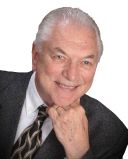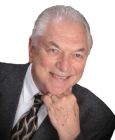My father does not want to die and I understand that.
That said, I have watched as over the past three years the quality of Dad's life has been steadily reduce to something approaching zero. At 89, he suffers from Parkinson's. His lone kidney failed eight years ago and he has required dialysis three days a week since then. His hearing has failed to the point where hearing aids no longer work. Instead, a few months ago I bought him a pair of headphones that connect to an amplifier he wears around his neck. He can now hear if you are within three feet or so and speak loudly. He can't hear the television that is located a few feet further than that, though he enjoys watching baseball games. Once a prolific reader, he now reads nothing, claiming that he isn't interested. I suspect that the real reason is that he can't hold a book steady enough to read it and refuses to consider using a stand of some sort. Three weeks ago he suffered a heart attack that was described to me as "severe." After 6 days in the hospital he reluctantly agreeing to spend 10 days in a rehab facility, where he lobbied so fiercely to go home that his doctor relented and discharged him.
As little as three months ago Dad was able to ambulate in the small condo that he and my mother live in with the aid of a wheeled walker. Today he can hardly do that. He also can't button his shirt, put socks on his feet, or manage to get his belt through the loops on his pants. My mother, who is 88, now has to do those things. Like many in my situation I have a full time career and a family that compete with my parents for my time and attention.
If reading this makes you depressed, consider this: My father is a living testimonial to the "miracle" of modern medicine. There are millions more like him, along with millions of families who face the same things I do. Not long ago the heart attack would very likely have ended Dad's life. As my own physician put it to me when I saw him for my annual physical two weeks ago, "Your father's major illness is his age. At his age the body has little to no recuperative powers." Afterward I found myself wondering: Is that true? And if it is, does that mean that my father's fate is destined to be mine as well?
Frailty: Physical vs. Psychological
Dr. Linda Fried, a geriatrician and dean of the Mailman School of Public Health at Columbia University, recently spoke about her work in defining "frailty" in older men and women ((http://www.nytimes.com/2012/06/26/science/reframing-views-of-aging.html) . Dr. Fried has defined physical frailty of the kind that describes my father as a condition that has its roots in inactivity and poor nutrition. For him the former is definitely true, the latter less so. These factors, Fried argues, combine to lead to a progressive decline in the body's muscle mass, which in turn leads to decreased stamina and overall lethargy. From there, frailty proceeds to a gradual disintegration of the body's immunological system as well as other vital systems such as circulation.
Much of Dr. Fried's work has focused on preventing, reversing, or at least arresting frailty. Her method is elegant in its simplicity: She gets older men and women involved in such activities as tutoring children in math and reading. By requiring these volunteers to walk a certain distance to meet with their charges, Dr. Fried believes that these men and women benefit both physically and psychologically. That may be so -- but does it also fly in the face of a reality that we all must ultimatel confront?
The irony of my father's situation is that his mind remains lucid even as his body progressively abandons him. In no way would I use the word "frail" to describe my father's mind. On the contrary, he is about as sharp as he ever has been. Despite the fact that he spends hours a day sitting in a chair either dozing off or staring into space, it's clear to me that he's also thinking. I can tell that by the comments he makes. These are sometimes off the mark of any conversation going on around him, as he cannot hear; but they are in no way nonsensical. And while he can't write entries in his check book he knows exactly where his money is going.
One challenge facing me these days is having to break the old family pattern of my father making all the decisions, which he seemingly did forever. For example, I now help my mother pay the bills he was in charge of for as long as I can remember. And after he returned from the rehab center I had to tell Dad that we are bringing in hired help to help him get dressed every morning, as well as to see to it that he successfully gets on and off the van that transports him to his dialysis treatments. I know that he resents this and I suspect that he perceives it as a testimonial to his increasing frailty--not to mention an expense he would object to!
The most difficult issue by far, though, for me, my mother, and my brothers, is to initiate a discussion with Dad about end of life. Even as his frailty worsens and his body succumbs to sheer age, he has so far refused to talk about options -- for example, at what point (if any) might he prefer to stop dialysis and have hospice care at home? My fear is that if he continues to avoid this discussion something will happen to him, physically, and that he will end up unconscious in an intensive care unit, as he did a few weeks ago. At that point his mental hardiness will be of no use to him -- or to those who love him. Hundreds of thousands of Americans are in that situation right now, and their numbers will only increase over the next decades if we as a society do not step up to the plate and face the conflicts created by our ability to extend life while avoiding the inevitability of our mortality.
I am all for programs, like Dr. Fried's, which offer hope to stem frailty as we age. At the same time I fear that this may also play into the collective phobia of aging and death that seems to have descended over our society. I would much prefer to see programs aimed at reducing physical frailty combined with an equal effort to recognize its ultimate inevitability. I would also prefer to see our culture make some movement toward a recognition of the need to balance a discussion of extending longevity with an equal discussion of the costs versus benefits of extending life. In the end my father must make these decisions, as each and every one of us must. However, if we continue to focus solely on trying to extend life while reducing or avoiding our human frailty, we can only expect more and more of us to find ourselves coping with the very "illness" my doctor spoke of -- the fact that fraitly is inevitable and life ends.
To engage in this dialogue I encourage readers to visit the web site initiated by Dr. Barbara Okun and myself: www.newgrief.com or see our book, Saying Goodbye: A Guide to Coping with a Loved One's Terminal Illness.




